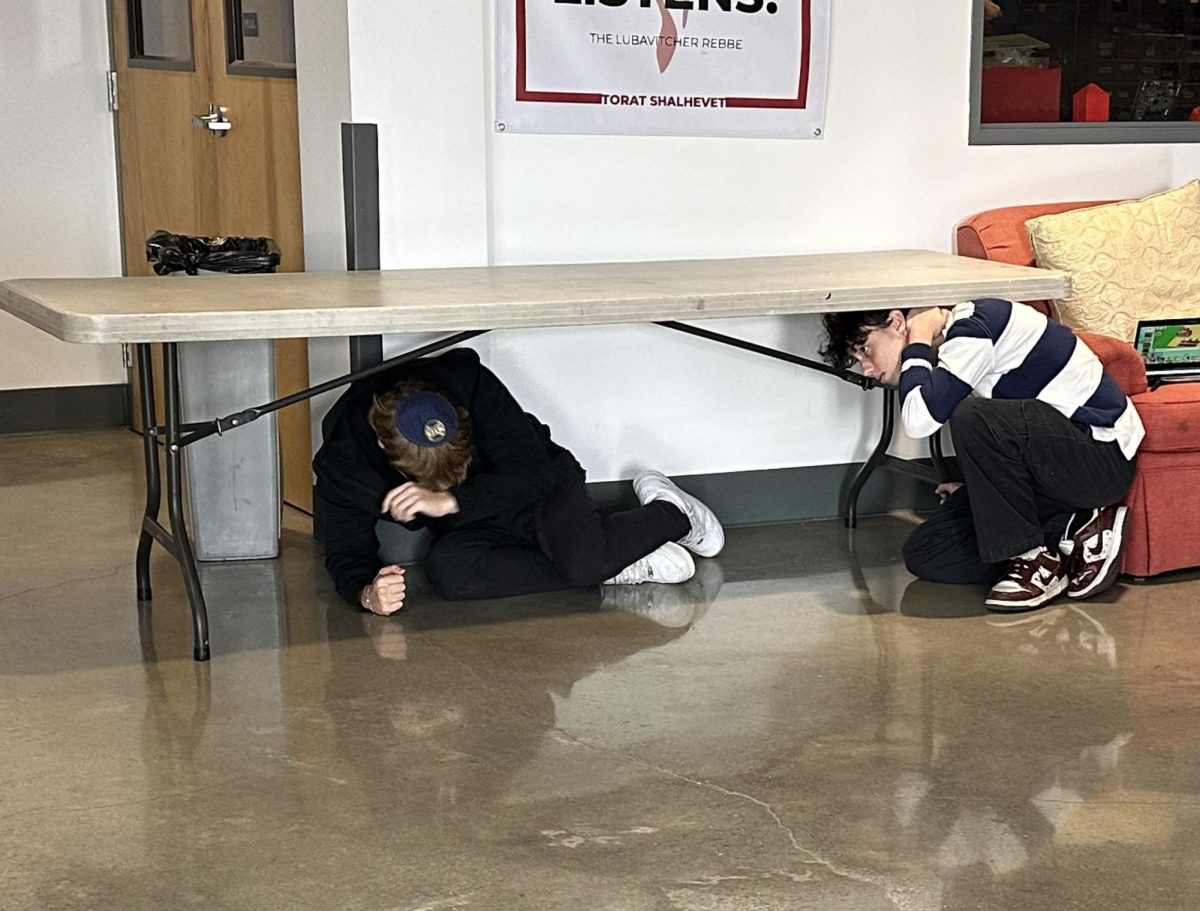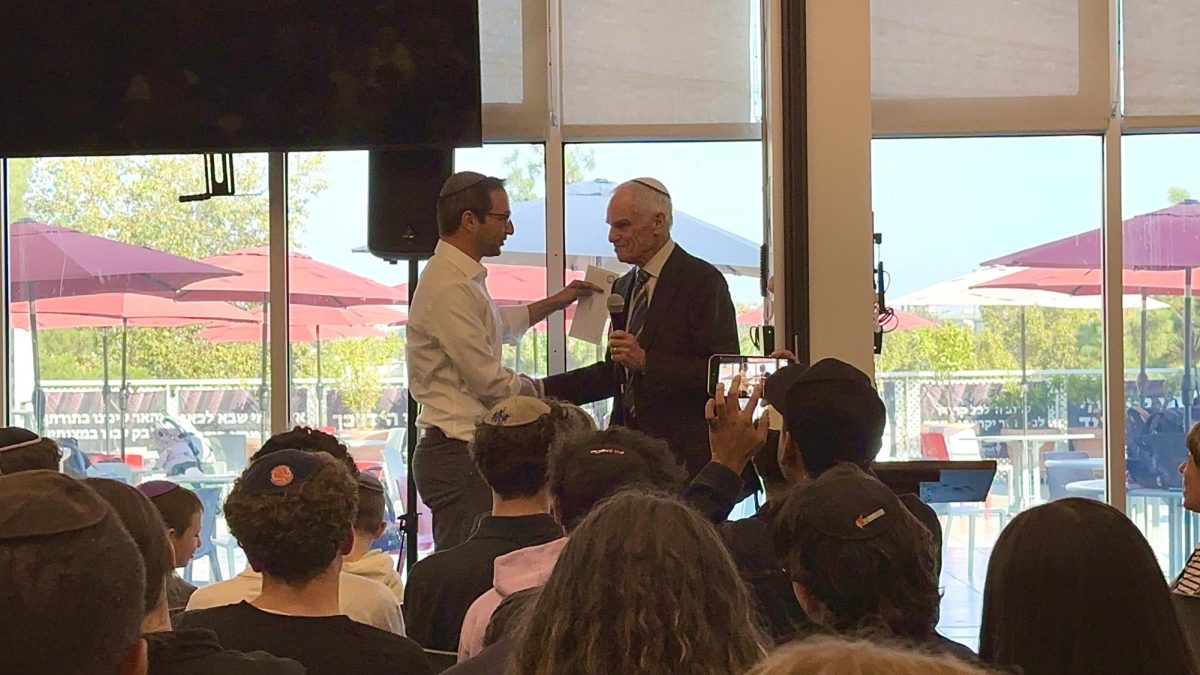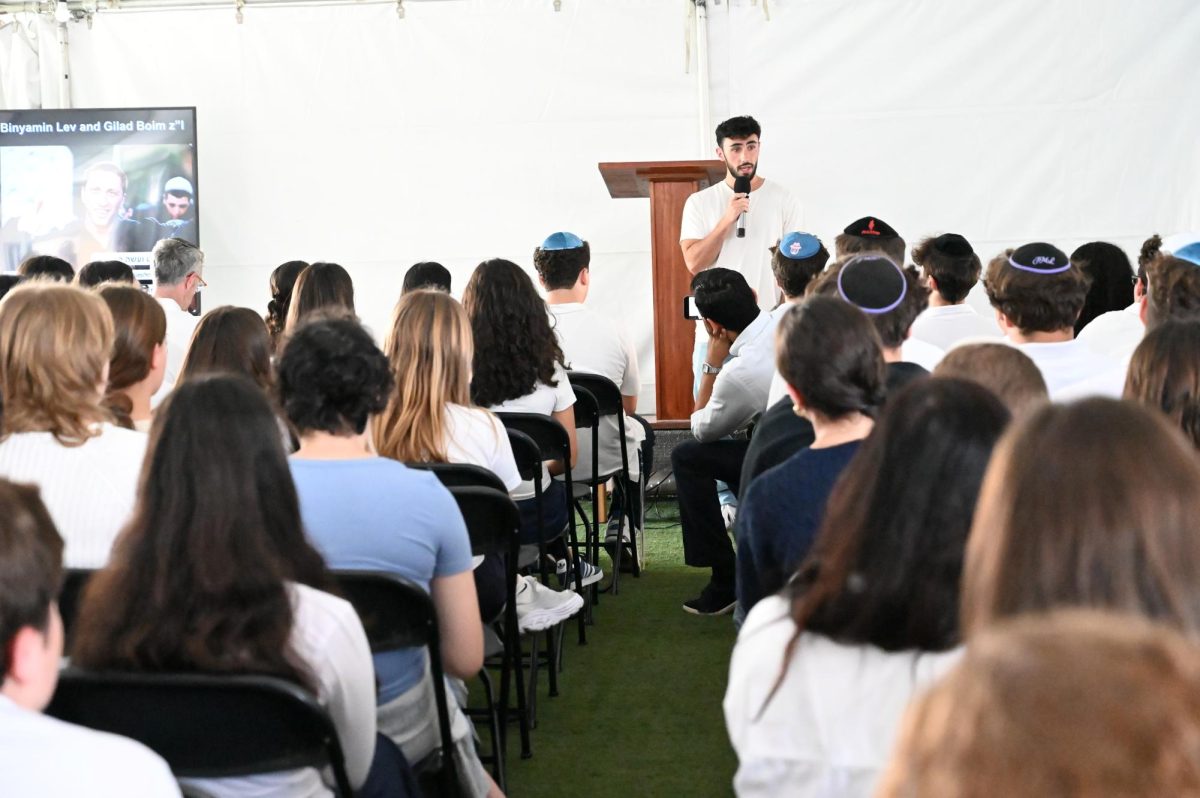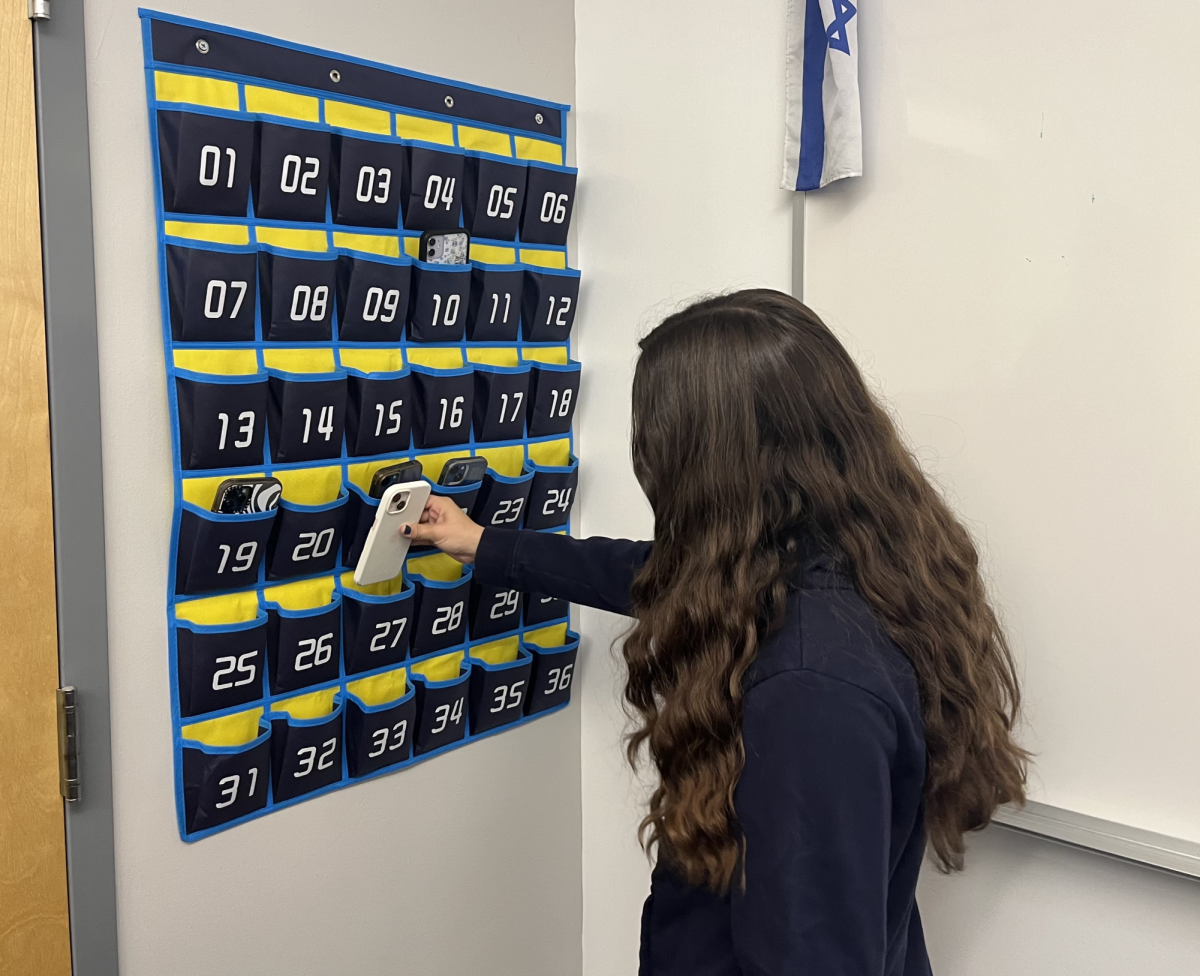Can you think of any moments in your life in which, just for a few seconds, everything seemed so sublime and transcendent and complete and pure that you saw stars? For much of the sophomore class, the whole Israel trip was that.
One example was the sunset at Mitzpeh Ophir, a lookout point located near Tiberias about halfway through the two weeks in Israel. While one of the group’s Israeli guides spouted mystical profundity, a record five minutes went by without a single cell phone ring or giggle. A complete stillness overcame the sophomore class as they peered out silently into the orangey-pink horizon and watched the sun sink beneath the shadowed mountains.
“It was a really amazing view and I’ve never seen anything like it,” said Sam Joffe.
Those five minutes, along with the rest of the trip, were so untouchable and so perfect that it’s almost a disservice to attempt to describe them.
From Jan. 13 to 27, during finals and over winter break, the sophomore Israel trip that almost wasn’t crammed in nonstop adventure, knowledge and spirituality. At the beginning of the school year, the administration had cancelled the trip and it was only a month or two prior to departure that it was put back on the schedule. By this time, some students had made other plans for their winter vacations, which contributed to weak attendance – only a little over half the grade went on the trip.
Still, though many of those sophomores had visited Israel before, they said that this particular venture into the Holy Land was dissimilar from all the rest.
“I had been to Israel on an organized trip before and done some of the same activities, but this trip was a lot more special because I felt closer to the people I was with,” said Yael Rabin. “It was a lot more meaningful also because I’m more mature now than when I last went. It was the greatest experience ever!”
Other highlights included a jeep ride over the bumpy terrain of the Golan Heights on the second day. As the jeeps whizzed past lush green trees, a few groups stopped to snatch some ripe, tart pomelos.
“It was really beautiful there and so much fun to laugh with our friends,” said Sara Fletcher, who cited the ride as one of the high spots of her trip.
And the Israeli staff was a highlight in itself. There was Mordechai, a psychology and folklore major at Hebrew U, and the coolest Bob-Dylan-humming, mandolin-toting tour guide of all time.
Though verbose at times, Mordechai’s engaging stories and arsenal of obscure knowledge wowed the group repeatedly. For example, did you know that Tim Burton’s movie The Corpse Bride is based on a story written by The Ari, the celebrated Jewish mystic? Yeah, me neither.
There were Avigail and Shelli, some of the greatest Bat Ami we never had. Though they vehemently denied their connection with the Bat Ami program (“We’ve done our army service!” Shelli vowed), they were repeatedly referred to as the Bat Ami. Avigail and Shelli acted out skits to help explain conflicts in both biblical and modern Israel. They also were also really caring, sensitive people.
“In Gadna, Shelli laid a chocolate on each of our beds,” recalled Aliza Kellerman. “It was the perfect remedy to getting through those four grueling days.”
Lastly, there were Omri and Yochai, the security guards. Though they didn’t contribute much by way of information or touring, this didn’t stop them from collecting an extensive fan following.
Visiting Metullah, the northernmost city of Israel, the sophomores embarked on a hippie-esque journey as they dined on homemade soup and Bisli on the floor of Mordechai’s friends’ home. An elderly man who was one of Metullah’s founders spoke with us about the historical background of the city and pelted us with encouraging, Zionistic thoughts.
The students concluded their visit there with a drum circle in which every student was given two wooden sticks and was instructed to beat to his or her hearts’ content. Everyone was jumping and banging and dancing and laughing and screaming “Eliyahu ha navi zachoor latov” (“Elijah the prophet should be remembered for good”) at the top of their lungs. The experience was completely absurd and surreal and marvelous.
But Israel wasn’t all fun and games and drum circles; there was plenty of regular education going on too. One day the group visited a military bunker and learned the story of Tzvika Greengold, who fought in the Yom Kippur War. Using his quick thinking and a dash of chutzpah, Tzvika – all alone in his tank – managed to outwit an entire Syrian tank unit.
Using different voices and driving his tank around while shooting erratically, Tzvika gave the Syrians the impression that there was an entire unit of Israeli tanks. This scared the Syrians to such a great extent that they fled the scene. Mordechai explained the success of the Israeli army in one sentence: “Every Israeli soldier is given a gun and a Bible – a gun to fight with and a Bible to know what he’s fighting for”.
“I thought it [the visit to the military bunker] was incredibly meaningful,” said Daniel Goltzer. “I mean, actually seeing where people fought and hearing about how hard they fought just made me want to fight for the land myself even more.”
Next the group visited Tzfat and gorged themselves on ice cream. Clattering down cobblestone alleys, browsing overpriced artwork, and visiting the shul of The Ari got their minds off the affair to come: Gadna, a four-day taste of life in the Israeli Defense Forces.
Though students didn’t know exactly what to expect, the sensationalized stories passed down from upperclassmen were enough to generate nervous energy and a sense of impending doom as we traveled south by bus to the Negev. Not even watching The Hebrew Hammer, one of the funniest, least politically correct movies ever seen, could lull the uneasy crowd. Transitioning from a luxurious (pillows! hot water!) youth hostel to army life was, to put it lightly, a radical jump.
At Gadna, from 5:30 a.m. to 10:00 p.m. every minute of every day was planned out. When giving a mission, the mefakedet (platoon leader) would scream just how many seconds remained. Then, while carrying out the mission, students were to scream the amount of time remaining.
There was one day of learning procedure, one day in the fields, one day learning gun safety, and one day actually shooting the M-16s. The food looked like the slop that TV show characters are served in their cafeterias. Though sleep-deprived and irritable, at Gadna the grade really cemented a strong bond and broke whatever little remained of the cliques.
“Gadna is the bomb-diggity!’ exclaimed a very positive Talia Nimmer. She was somewhat less enthused the next morning when the mefakedet unzipped her sleeping bag as a last-ditch attempt to awake her.
Hayley Fields fired a slew of expletives so graphic that it would make Howard Stern blush when questioned about Gadna, while Chantelle Rochelle added: “It’s, uh, not really my thing but there’s nothing I can do to change it. I guess it’s better than I expected.”
When it came time to leave the army base, most of us were relieved. Looking back, Gadna might have been the pinnacle of the trip but, then again, hindsight is 40 – 20.
The rest of the trip was somewhat of a blur. Perhaps making up for the slowness of the passing time on Gadna, the remainder flew by at hyperspeed. We caught up on sleep in a poser Bedouin tent (they had insular heating), rode camels, and went to the bustling Jerusalem shuk on a Friday afternoon.
Then, on the final Friday night, we walked to the Kotel for a night to remember.
“Mordechai gave us the assignment to give Shabbat hugs to a certain amount of strangers,” said Meital Cafri. “Most people thought it was cute – I even made a couple of friends! If someone did that in LA, it would be really weird, but in Jerusalem, there’s a different mood. Everyone is so relaxed and happy.”
Meital hugged over 30 people that night and happily reports that she is constantly chatting via Facebook with her Kotel buddies.
“That Friday night was the most exhilarating night of my life,” said Zach Miller. “I danced to ‘Lecha Dodi’ with IDF soldiers and our entire grade sang and danced all the way back to our hotel room! Seriously, where else could something like that happen?”
Such is the infectious vibe and distinction in protocol between Israel and everywhere else in the world. If a stranger suddenly lunged to hug you on the street in Los Angeles, you’d call the cops, but in Israel, especially on Shabbat, these things are not just tolerated, but encouraged. A local seminary warmly invited a group of sophomore girls into their Shabbat circle to sing niggunim. People stopped us on the street to give Shabbat blessings.
The fact was that without knowing anyone’s political preferences or level of observance – without even knowing anyone’s name or speaking a word to them! – throughout the trip there was instant unity between the sophomore class and the natives of Israel.
Having no knowledge of the individual strangers’ opinions, this powerful bond formed purely by virtue of just being in Israel, of simply being connected to the historic and magical land.






